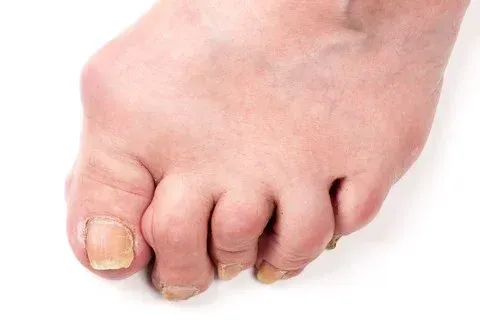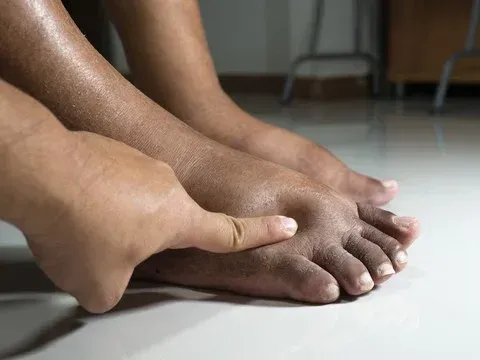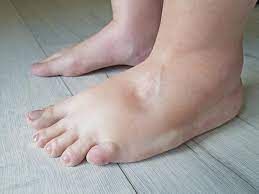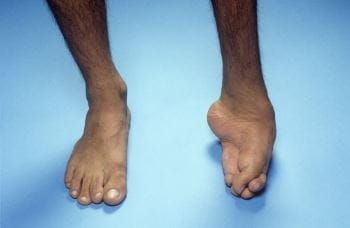Home > Foot & Ankle Condition We Treat > Gout
Gout
Gout is a common type of arthritis, which causes pain, stiffness, and swelling in the joint. Gout most often affects the big toe joint.
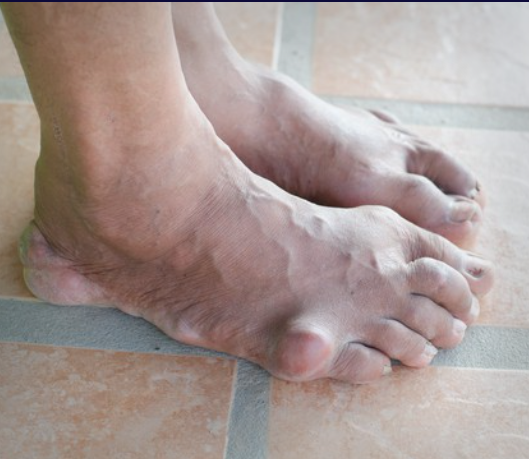
Request an Appointment
We will get back to you as soon as possible.
Please try again later.
Related Conditions
Quality Gout Treatment in Southfield, MI
What is Gout?
What causes Gout?
How is Gout Diagnosed?
How Does Foot Surgeon Treat Gout ?
What are the symptoms of Gout ?
How to prevent Gout ?
You can prevent gout or even stop further recurrence by following these dietary and lifestyle guidelines.
- Drink adequate amount of water, at least 2 to 4 liters daily.
- Avoid alcohol.
- Maintain a healthy weight and get adequate exercise.
Symptoms of gout usually appear without warning, and in most cases, in the middle of the night. The major symptoms of gout are intense pain in the joint. Other indications are redness, inflammation, and discomfort. The joint of the big toe is the most affected during a gout flare. However, gout may also affect the fingers, elbows, wrists, and ankles.
Most cases of gout can be treated with medications, prescribed by a podiatrist near Wyandotte and Southfield. Medication is used to treat attacks, reduce risk of complications (onset of tophi or kidney stones), and to prevent future flares. They also combat the inflammation and treat pain in the affected area. Some medications work by either reducing the amount.
Gout is a somewhat tricky condition to diagnose because its symptoms are similar to those of other disorders. Most patients with gout have hyperuricemia, but not all people with hyperuricemia develop gout.
One diagnostic test the podiatrist near Wyandotte and Southfield may order is the joint fluid test. In the joint fluid test, a needle is used to extract fluid from the affect joint. The fluid is then analyzed for the presence of urate crystals. As symptoms of joint infection are similar to those of gout, the Foot and Ankle Doctors near Wyandotte and Southfield will also examine the fluid for the presence of bacteria.
The Foot and Ankle doctors in Wyandotte and Southfield may also do a blood test to measure the concentration of uric acid in the blood. Just as people with hyperuricemia do not always experience gout, some people may develop gout symptoms even with a normal level of uric acid in the blood.
Lastly the podiatrist may examine the joints for urate crystals. This is done with CT scans or ultrasound.
There are several different types of gout, and all can be treated by the podiatrist. These include:
- Asymptomatic hyperuricemia
- Acute gout
- Inter-critical or interval gout
- Chronic tophaceous gout
- Pseudo gout
Gout is a common type of arthritis, which causes pain, stiffness, and swelling in the joint. Gout most often affects the big toe joint.
Gout attacks happen quickly and are recurrent meaning they come and go over time causing the tissues of the joint to slowly be destroyed. Studies have linked gout to a rise in metabolic and cardiovascular disease. Pain from gout can be very intense.
Gout is more common in men but also affects women with incidence rising after menopause. A study by the Centers for Disease Control and Prevention (CDC) shows no less than 8.3 million Americans suffered a gout attack between 2007 and 2008.
The leading cause of gout is excessive uric acid (hyperuricemia). Uric acid is produced during purine metabolism. Purines are chemical compounds found in seafood, poultry, and meat.
Under normal conditions, uric acid dissolves in the blood and is excreted by the kidneys as urine. However, if too much of it is produced or the rate at which it is made is higher than the rate at which it is excreted, it will accumulate and yield crystals. These crystals cause pain and inflammation in the joints.


